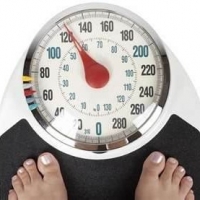Lose Weight > Weight Loss Tips > Weight Loss Articles > Body Wraps And Waist Wraps: The Difference Between Losing Fat And Losing Inches
Body Wraps And Waist Wraps: The Difference Between Losing Fat And Losing Inches
The truth is, body wraps and waist belts do not shrink fat cells or burn body fat - no matter what type of wrap is used: bandages, plastic, foil, vinyl, or rubber, and regardless of what you are wrapped in: herbs, minerals, enzymes, seaweed, clay, or mud. Fat can only be lost with a caloric deficit from a reduction in food intake, an increase in activity or ideally, a combination of both.
Whenever you see fat loss claims for wraps or any other product which doesn't involve a caloric deficit created through nutrition or exercise, the "scam alarm" should go off in your head, and you should always stay away, no matter how compelling the sales pitch.
Furthermore, the companies making fat loss claims would be in hot water with the Federal Trade Commission (FTC) if they were investigated and caught because claims for body fat reduction from wraps cannot be supported with scientific evidence.
The FTC as well as numerous state attorney general's offices have already taken action against body wrap companies in the past for false advertising and unsupported claims. Some companies simply had to stop making false claims, others had to pay stiff fines as well. The problem, from a legal and ethical standpoint, is the claim being made. Remember, "inches" and "fat" are not the same thing.
Some types of wraps can definitely take off inches (for example, they might reduce the circumference measurement of your waist, hips, arms and legs), but it's not fat, its water weight and fluid, and the results are temporary.
Suppose this claim is made in an advertisement:
* Lose Up To 15 inches in 1 Hour! *
This is legal advertising because the claim "lose inches" might be supportable (if enough circumference measurements are taken with a tape measure at enough sites, that might add up to a total of 15 inches in circumference loss)
However I believe that these types of claims are misleading (and probably intentionally so), because "inches" is not the same as body fat but the product vendors know that you might easily confuse "inches" with "fat."
Contrast that claim with this one:
* Lose Body Fat without diet or exercise in 1 Hour!*
That claim is totally false and scientifically unsupportable.
Again, body wraps cannot burn fat or "shrink fat cells."
If fat loss could be achieved with body wraps, it would be very easy to test and prove.
Body composition (body fat) testing (rather than measurements of inches) could be performed before and after the wrap, and the answer ("does it work") would become easily exposed.
Since it doesn't work, you won't find any wrap people accepting your challenge to allow you to do independent body composition testing, nor will you find a shred of scientific evidence showing reduction of bodyfat from wraps.
Unfortunately, bogus fat loss claims are still quite widespread, as a simple Internet search for "body wrap" will demonstrate. The most frequently used claims however, are for loss of "inches."
The inches lost simply come from loss of fluid. And guess what - those inches (and or water weight) will come right back in days if not hours, as soon as you completely re-hydrate yourself.
Other claims made for body wraps include detoxification, improved circulation and tighter, smoother and clearer skin. Most health and fitness researchers, as well as government agencies such as the Food and Drug Administration (FDA) will tell you that these claims are "debatable" and mostly anecdotal.
Some experts even warn that certain types of wraps can be dangerous, mainly due to the rapid and excessive fluid loss/dehydration.
If you want to get wrapped because you find it relaxing or you consider it a "spa-like" treatment, that's one thing. Just remember, wraps have absolutely nothing to do with fat loss.
I'd suggest completely avoiding any companies that advertise fat loss when it's only water and inches you're losing, because a dishonest company is one you don't want to patronize at all.
One last thing - this is a timely subject because although "body wraps" have been around for ages and it's old news, I noticed that infomercials for "waist belts" or "sauna wraps" are back on TV in force and I see that they are replaying the ads over and over again, which means people are buying it.
Everything I just said about body wraps also applies to those rubber waist belts too.
On a web search I just did for those rubber belt waist wraps, I noticed some of the websites are STILL making claims like "Melt fat" (totally bogus, unsupported and illegal claim).
Other sites seem to be wary of the FTC paying them a visit, so they do a whole song and dance around the legal issues by saying stuff like, "sweat away inches," "therapeutic heat", "target your problem areas" and so on. Even if these claims are not illegal, the promotions are still deceptive...
The professional fitness model is pictured taking off the rubber belt, revealing ripped six pack abs below... as if those abs are a result of wearing the belt! Wishful thinking! These are professional models, folks. They got the abs the same way everyone else with abs got them - with a calorie deficit from a combination of strict diet and hard training!
Wraps and waist belt products might take off some inches or water weight, but they can't take off a single ounce of fat. Buyer beware.
Related Articles
-
Diabetes Diet Foods Avoid
The history of diet plan dated from the moment that the first monkey e
-
Lose 20 Pounds in 3 WEEKS - The Hottest Diet of 2009 That Has Millions Losing Weight LIGHTNING Fast!
How would you like to lose 20 pounds in 3 weeks a keep those pounds of
-
I Lost Weight Once But It Came Back!
It seems like most people can lose weight, but they seem to gain it ba
-
Fat Burning Furnace - Tips for Easy Weight Loss and Staying Thin for Life!
Fat Burning Furnace - Tips for Easy Weight Loss and Staying Thin for L
-
Spot Reducing is For The Laundry
?Can you give me an exercise that will get rid of th
-
How to avoid gaining Weight?
If you have observed that you are gaining weight as you are getting ol
- DON'T MISS
- Deflect Phony model of Phen diet pills
- Amazing Tricks for Flat Belly
- Why Losing Weight Quickly May Not Be The Best Thing To Do
- Whats The Magic Number Of Calories To Lose Weight Fast?
- Diet Tips Reduce Weight
- Acai Burn and Total Cleanse Supplements Help Lose Weight
- Fat Burning Diet - Secret Food Recipes
- Tips On Weight Loss Diets That Work Fast
- How to Use a Weight Loss Patch: The Stick-on Alternative for Weight Loss
- Does Rapid Weight Loss Have Hiddent Dangers and Problems




